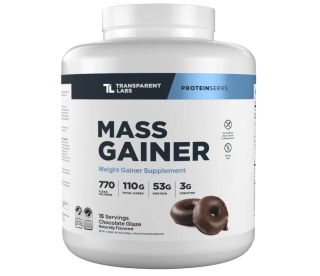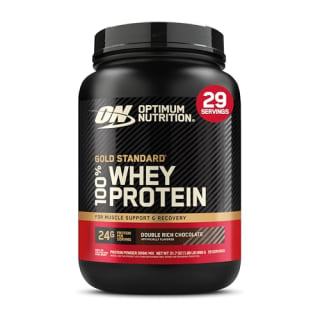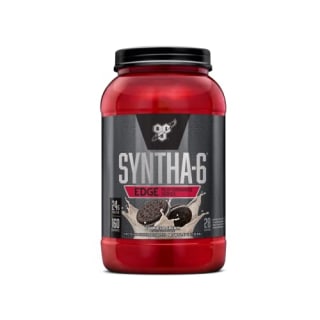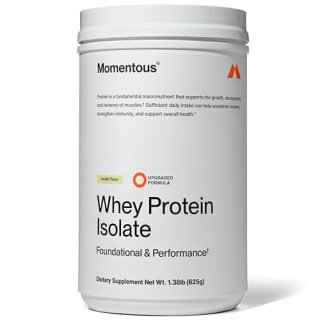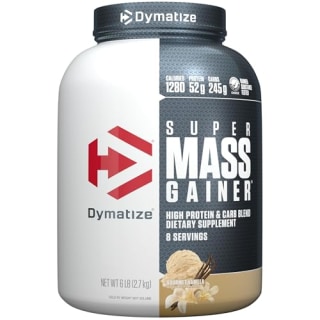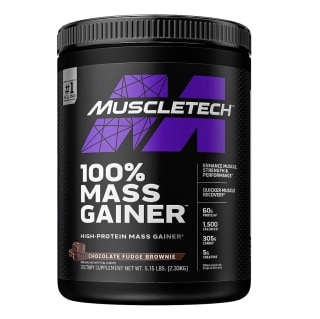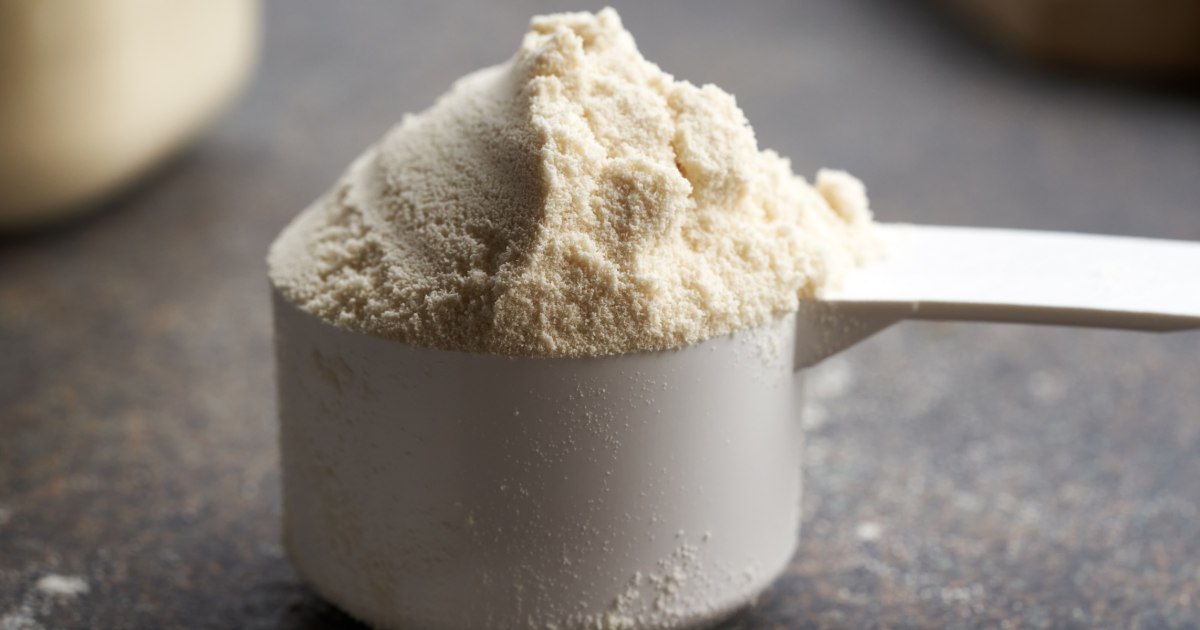
Are Your Favorite Protein Powders and Shakes Safe from Lead?
When it comes to nutrition trends, protein is having a major moment. Walk down the aisle of any grocery store and you can find protein-infused popcorn, yogurt, ice cream and more. And, of course, there are plenty of protein powders and shakes to buy. If you rely on the latter to get more protein into your diet, you’ll want to pay attention: Recently, Consumer Reports launched an investigation to look into what those powders and shakes actually contain. The results: Of the 23 brands it tested, more than two-thirds contained more lead than food safety experts say is safe to consume in one day.
Before rushing to throw out all the protein products currently in your pantry, read on to learn more about what this news really means — including how concerned you need to be.
Is there lead in protein powders and shakes?
Consumer Reports tested 23 protein powders and ready-to-drink shakes. Through this testing, it was found that approximately two-thirds of those tested contain more lead in a single serving than experts say is safe, which is under 0.5 micrograms a day. Some even had up to 10 times the recommended daily intake, according to the report.
Of all of the protein powders and shakes tested, plant-based options had, on average, much higher levels of lead than those that were dairy or animal-based. The dairy-based protein products had the lowest amount of lead, but several still had high enough numbers that experts from Consumer Reports advised against using them daily. NBC Select has not independently verified these findings.
Why is consuming high levels of lead potentially dangerous?
According to the World Health Organization (WHO), consuming high levels of lead can impact your body in various ways and is considered to be harmful. Once lead is consumed, it is distributed to various organs — including the brain, kidneys and bones. High levels of lead exposure have been connected to anaemia, hypertension, renal impairment, cardiovascular issues and more, according to WHO.
Which brands had high levels of lead?
As mentioned, Consumer Reports tested 23 protein powders and ready-to-drink shakes. Based on the results, it sorted the tested items into three categories: what you should avoid, what you should limit and what its experts deemed safe to consume. NBC Select has not independently verified these findings.
Those results can be found below:
Products to avoid
Suggested to limit to once a week
- Garden of Life Sport Organic Plant-Based Protein
- Momentous 100% Plant Protein (no longer available)
Okay for occasional use
How protein companies are responding to this new report
We reached out to all 23 of the manufacturers with protein powders and shakes that were deemed not safe for daily consumption by Consumer Reports. At the time of publication, six companies responded to our request for comment.
Here’s what they said:
Garden of Life: “At Garden of Life, we carefully select ingredients to meet our high standards for quality and safety in order to ensure that our products are safe. Certain substances, such as heavy metals, commonly occur in the environment in soil and water. This may result in low levels of heavy metals in agricultural raw materials. Garden of Life products are tested for heavy metals, and the levels are below established food safety thresholds.
All of our products are safe to consume and consistently adhere to our own and established government standards and food safety guidance. We can assure that our products are safe for daily use because we apply this food safety guidance as our product release criteria.”
Huel: “We are extremely disappointed by this report, which the NPA described here as ‘alarmist, misleading and unscientific’ and the CRN have described here as creating a ‘misleading impression of risk.’ We have responded in this article in full.
Trace minerals such as lead occur naturally in our planet and so are found in soil, water and plants. For context, a meal of sausages, potatoes, cabbage and carrots can contain around 5 micrograms (µg) of lead, and most adults consume between 20 and 80 micrograms (µg) per day from normal foods. Huel is no different from everyday meals in this respect.
The Consumer Reports article is based on California’s Proposition 65, which uses an ultra conservative threshold of 0.5 micrograms (µg) of lead per day. California rules divide the observable effect limit by 1000 to allow a margin for error. For comparison, the EU benchmark is 270 micrograms (µg) per serve.
It is important to understand that the Consumer Reports approach reflects a uniquely cautious regulation rather than an internationally accepted measure of consumer safety.
Over the past three years, we have carried out 17 independent tests on Huel Black Edition powder alone, with results consistently showing lead levels between 1.5 and 2.2 micrograms (µg) per 90 g serving. These results are well within all recognised safety limits. Huel has also recently been accredited by NSF, the gold standard for product safety and quality, and the most recent NSF report showed undetectable levels of lead (‘non-detectable’ at their 3.6 microgram (µg) tolerance). It is important to note that we are talking about miniscule variations here of 2 millionths of a gram versus 6 millionths of a gram.”
Kos: “Please note that all KOS products are third-party tested in accordance with USDA Organic and FDA standards…Traces of metal and lead are found within the natural environment, and we do our best to filter them out as much as possible.”
Momentous: You can find a full statement from the brand here. A spokesperson for the brand also told us: “[The] Momentous products tested have been discontinued and are no longer commercially available. Momentous began selling its latest formulation for both Whey and Plant proteins earlier this year, with v1 products (used for the report) being fully sunsetted in all channels by March 2025.”
Orgain: “At Orgain, we carefully select ingredients to meet our high standards for quality and safety in order to ensure that our products are safe. Certain substances, such as heavy metals, commonly occur in the environment in soil and water. This may result in trace amounts being present in agricultural ingredients — such as plants, grains and other raw materials — that go into our products. Orgain products are tested for heavy metals, and the levels are below established food safety thresholds.
Our products are safe to consume and consistently adhere to our own and established government standards and food safety guidance. We can assure that our products are safe for daily use because we apply this food safety guidance as our product release criteria.”
Optimum Nutrition: “We share Consumer Reports’ commitment to consumer safety. All our Optimum Nutrition and BSN products are made in compliance with the FDA’s Good Manufacturing Practices, and we hold ourselves to even higher standards.
We test for heavy metals in the raw materials we use, formulate products so they are compliant with California Prop 65 criteria (among the strictest in the world), and test finished products through accredited third-party labs.
The health and safety of our consumers is our top priority. We’re pleased to see that Consumer Reports recommends our Optimum Nutrition Gold Standard Whey and BSN Syntha-6 as ‘better choices for daily consumption’.”
Other protein powders and shakes from Consumer Reports’ testing
Through its testing, Consumer Reports identified the below seven protein powders and shakes that contain low enough levels of lead for experts to consider them safe for daily consumption.
This chocolate ready-to-drink shake is plant-based and contains 32 grams of protein in one bottle, according to the brand. The formula is sugar-free and contains 9 amino acids., which can help with energy, according to Owyn. I’ve had this drink on a handful of occasions and find it to have a pleasantly sweet chocolate taste. The consistency is on the thicker side, so if that bothers you, you may want to skip.
This protein powder is intended for those trying to gain muscle. It has 53 grams of grass-fed protein, 110 grams of carbs and 15 grams of health fats, according to the brand. It also contains creatine, which can help with muscle gain and post-workout recovery, according to Transparent Labs.
Made from whey, this protein powder has 24 grams of protein for 120 calories per serving. You can use it before a workout, as a meal replacement or in between meals. Reviewers like the rich chocolate flavor and find that it dissolves easily in liquid.
This powder is made from whey and has 24 grams of protein and two grams of sugar in a single serving. Reviewers note that the cookies and cream flavor tastes like a milkshake. You can drink it by simply mixing it with water or milk or mix it into a smoothie or oatmeal.
The protein in this powder is sourced from grass-fed European dairy cows, according to the brand. It has 20 grams of protein per serving and is free from soy. A 1.4-pound tub has 25 servings and you can choose from vanilla, strawberry, chocolate or unflavored.
Another option for those looking to pack on muscle, this powder is calorie-dense and has 52 grams of protein in a single serving. It also has creatine to support muscle growth and vitamins A, C and E for overall health, according to the brand.
Why trust NBC Select?
Bethany Heitman is a weekend editor at NBC Select and a journalist who regularly reports on recall alerts — including recalls surrounding air conditioners and hand soap. She also commonly covers common questions pertaining to health and wellness — like whether plastic baby bottles are safe.
Catch up on NBC Select’s in-depth coverage of tech and tools, wellness and more, and follow us on Facebook, Instagram, Twitter and TikTok to stay up to date.
First Appeared on
Source link



